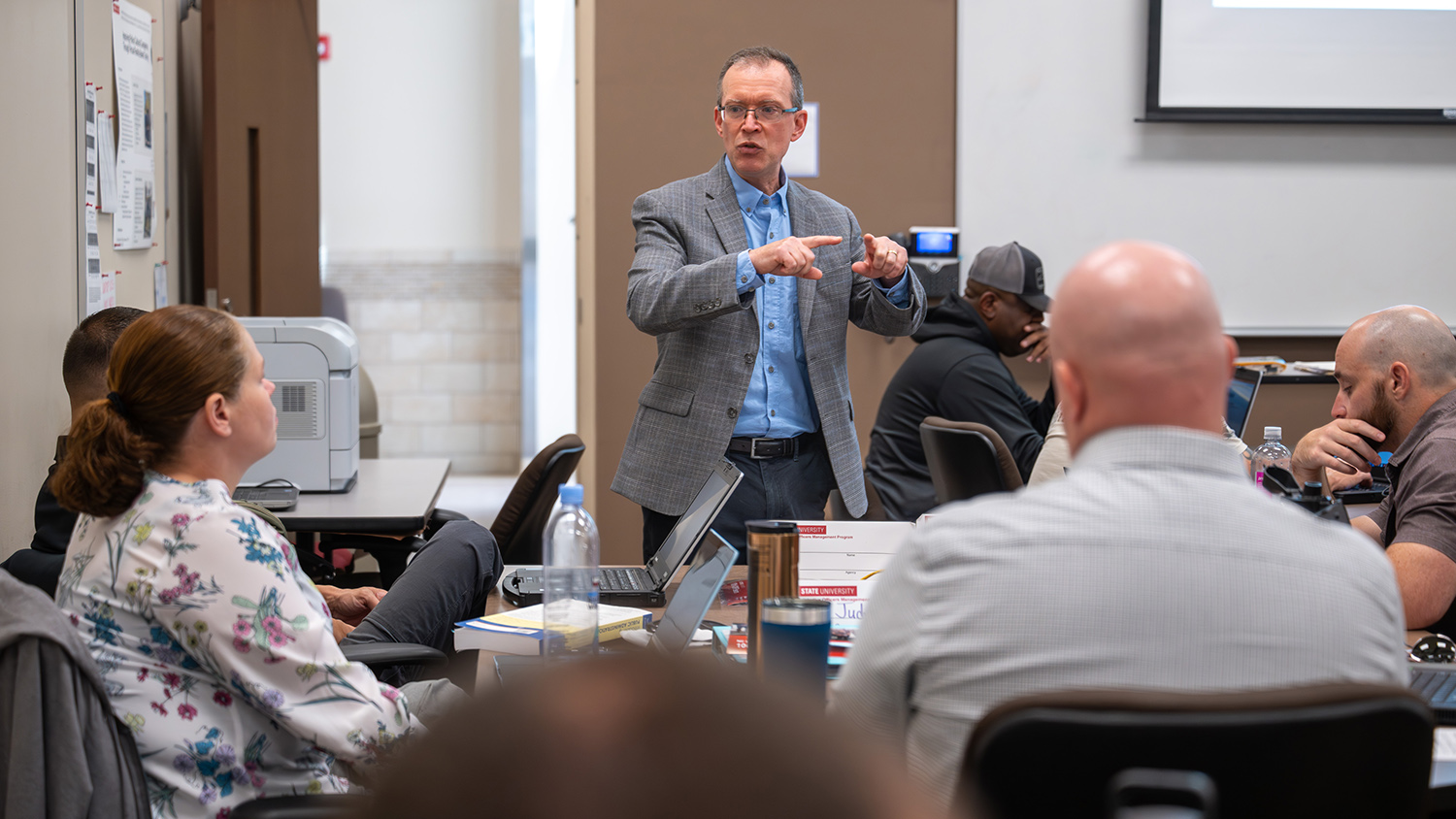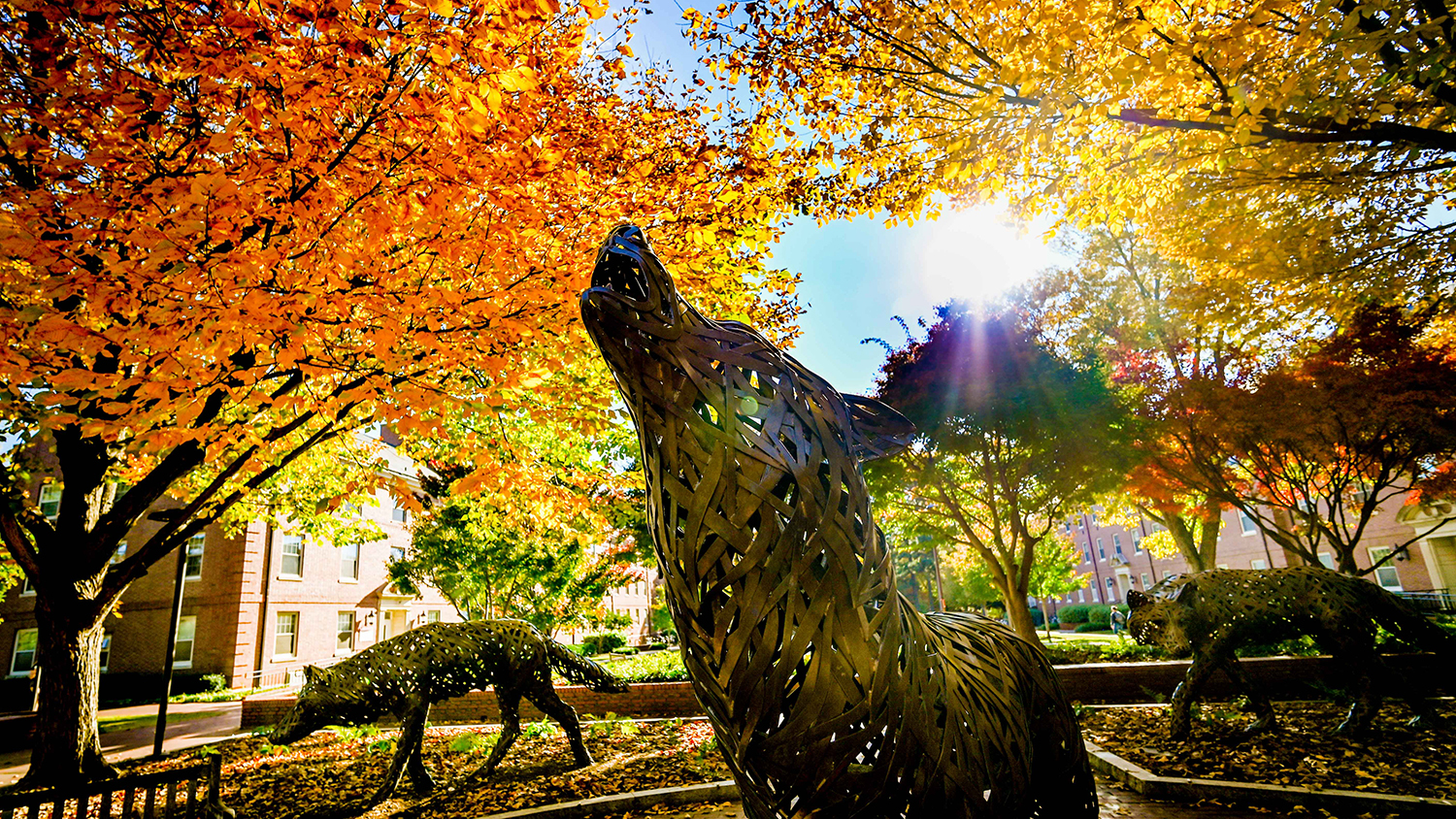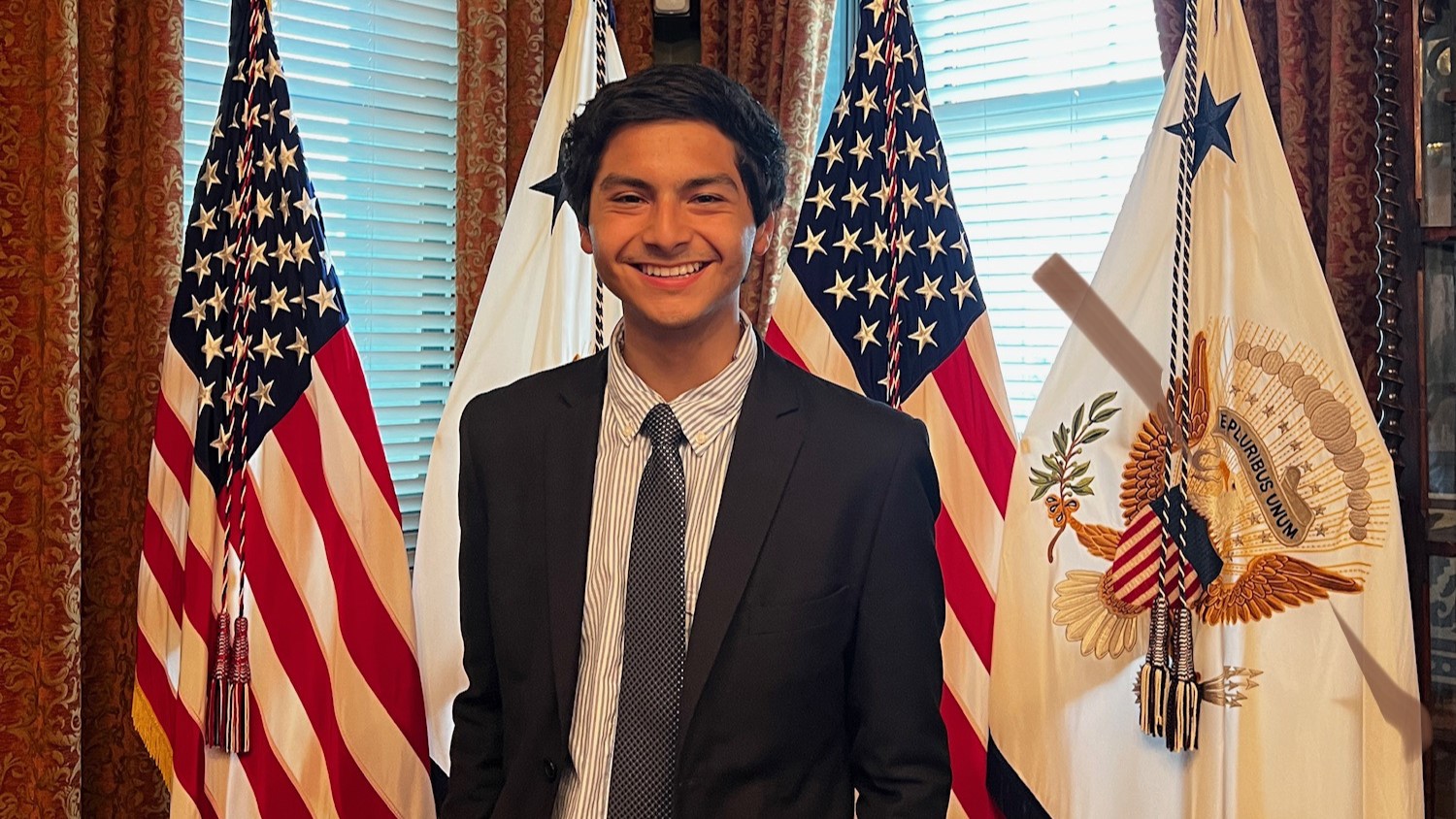NC State’s AOMP Program Celebrates Milestone in Educating Public Safety Leaders

As it commemorates its 100th session, the Administrative Officers Management Program (AOMP) remains committed to developing public safety professionals into proactive leaders who drive meaningful change in their organizations and communities across North Carolina.
Launched in 1989, AOMP is housed within the School of Public and International Affairs (SPIA) and is one of four long-term residential police management schools in the country. Among the College of Humanities and Social Sciences’ longest-running extension programs, AOMP partners with the North Carolina State Highway Patrol and the Wake County Sheriff’s Office to offer management courses on supervision, organizational behavior, police research and other topics. Since its start, nearly 2,600 public safety personnel have graduated or will soon graduate from the program.
As graduates leverage their education for the common good, the program’s impact has a ripple effect on public service administration, helping to set a standard for well-managed municipal governance.
“We try to build a governmental workforce and leadership in government that is not only efficient and effective but also fair in how it deals with the citizenry and public issues,” says James Brunet, director of the program, which is part of SPIA’s nationally-accredited public administration program. “If you’ve got professional leadership in public safety organizations, that tends to create professional law enforcement standards.”
The program’s collaboration with external partners is distinctive as is its longevity and faculty, Brunet adds. As a logical extension of the university’s land-grant mission, the program is dedicated to the needs of North Carolina law enforcement, and its graduates are focused on helping to meet the particular challenges of the state and its citizens. Among them is working with a state population growing and diversifying in some areas and declining in others, and the resultant and ever-changing social, cultural and political demands.
“We try to build a governmental workforce and leadership in government that is not only efficient and effective but also fair in how it deals with the citizenry and public issues.”
AOMP was started to fill the need for an in-state, long-term residential police management program. In 1987, the North Carolina Highway Patrol reached out to CHASS faculty to meet that need, Brunet explains, adding that the first class was offered two years later.
Col. Freddy L. Johnson, Jr., commander of the State Highway Patrol views AOMP’s 100th session as an important milestone for his agency, its graduates and the people of North Carolina.
“Our relationship with NC State and specifically the AOMP has helped in developing the high level of professionalism demonstrated throughout the years by our patrol leadership,” Johnson says. “Our storied history and national reputation as a leader in law enforcement services can very much be attributed to the training and guidance our members have received as part of the AOMP and our proud partnership.”
Wake County Sheriff Willie Rowe says the same is true for his organization.
“AOMP has had a profound impact on our personnel, equipping them with advanced leadership skills and strategic thinking,” Rowe says .“This has significantly enhanced our service to Wake County residents and visitors, fostering stronger community relationships. As a graduate of AOMP in 2001, session 31, I’ve seen firsthand how this program builds leaders committed to public safety and community trust.”
Rowe and Johnson are among the many notable public safety leaders who have graduated from AOMP during its 35-year history.
There have been key changes made to AOMP since its founding. While the 12-week academic program continues to be held three times a year, the summer session is now fully online. For the spring and fall sessions, non-commuting participants live in residence at the NC State Highway Patrol Training Academy in Raleigh.
Brunet says adding the online summer session three years ago has enabled the program to serve the entire state, especially remote and smaller departments that can’t afford to have an officer away from their department to meet the program’s residency requirement. Initially, the program served the southeastern U.S.; now it is focused solely on North Carolina, he adds.
All program participants, typically 24 per session, enroll in five academic courses to earn 15 college credits and a certificate of completion. Classes are held at the Raleigh-based Wake County Law Enforcement Training Center.
“These folks are taking a rigorous academic program, being tested, writing papers, giving presentations,” Brunet says. “I treat them no differently than I do graduate students I teach.”

The classes bring together the theoretical perspective of the faculty and the practical experience of police officers. AOMP’s faculty comprises seasoned law enforcement professionals and professors, who stay connected to the latest challenges and practices in the field.
“This theory into practice perspective enables participants to make meaningful changes in their organizations and their communities,” Brunet says.


